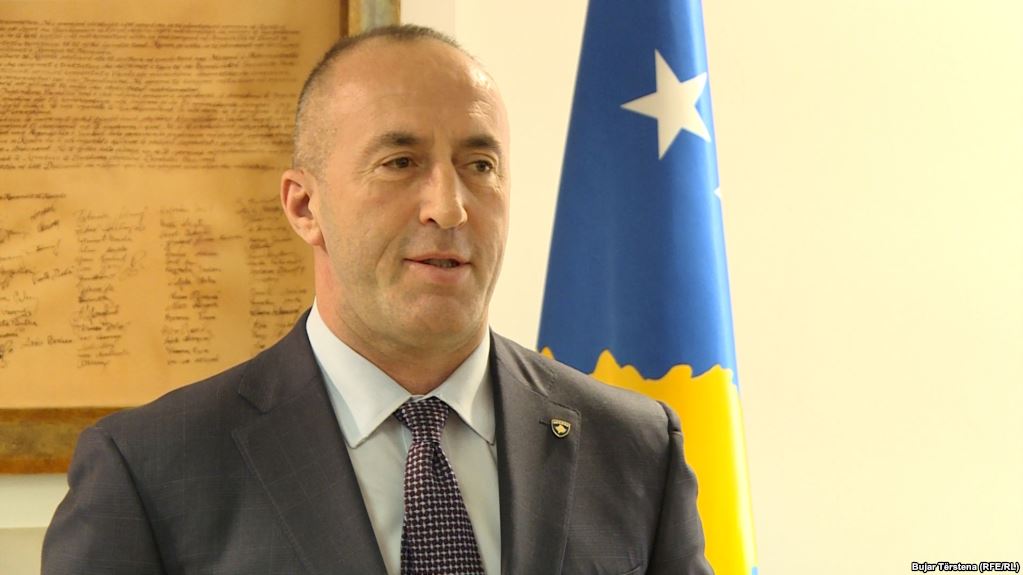EU Observer (29 January 2019)
In recent years, the European Union has been shaken by numerous internal crises, and none of the 'old members' managed to propose a strategy that would unify the continent.
Maybe its high time for countries like Poland, Sweden or Romania to introduce changes that would break the deadlock and monopoly of Germany and France in reforms of the block.
In a paper called A Union of Nations 2.0 we propose several changes to the EU, which are derived from the political philosophy behind the current Polish government, and what Poles expect from the EU.
This could be seen as a manifesto of the issues that Poland wants the next European Commission to tackle.
It is a wish-list but a coherent one, that proposes changes that can bind the marriage that in 2019 seems to be falling apart.
According to a study by mBank in Poland (owned by Commerzbank AG) the European Conservatives and Reformists, if the right-wing parties do align, will be the third-biggest party in the European Parliament with 153 seats, whereas the Socialists & Democrats will have 136 and European People's Party 179.
This will change the structure of the new commission drastically.
So one might look for other narratives and issues that the EU is going to tackle, because the mainstream ideas are not enough.
A Union of Nations 2.0 is based on three main issues: increased competitiveness, security and more democracy in the Brussels bubble.
There are 27 recommendations in the paper but I want to underline three that are crucial because they are non-partisan:
We need a European anti-monopoly office, responding to the challenges of the digital economy.
With short business cycles and the huge stock-exchange popularity of some digital services, it has become possible for individual companies to gain a dominant position on the market, thanks mainly to the 'winner-takes-all' principle.
The budgets of the largest technology companies are often larger than the economies of the member states, which means the authorities of small countries are powerless in clashes with firms.
Unfortunately, the reaction time of anti-monopoly institutions is too long.
Therefore, it is worth considering creating a fast decision-making path, with a dedicated team for digital matters and limited duration of proceedings.
More innovation in the EU by establishing a European Defence Agency, a la DARPA in the US.
DARPAs job is making key investments in breakthrough technologies for national security.
DARPA's efficiency means not only a high budget (about $3bn [€2.62bn] per year), but also direct financing of all solutions that seem to be promising in the broadly defined military – from artillery to solutions and tools use on a daily basis – i.e. the internet, GPS, or voice assistant in iPhones.
Direct financing means that DARPA analysis are different from civilian scientists' research, and do not need to be evaluated by specialists in the field.
Secondly, DARPA does not have to seek an investor to support published research results. Thus, it is time-saving.
Considering how effective DARPA is, we suggest creating a European equivalent of this organisation.
More democracy means less inequality and limiting intra-EU and world tax havens.
In 2016, the European Union adopted the ATAD (Anti-Tax Avoidance Directive), which is a continuation of the fight against tax havens.
The solution adopted introduces too few changes, however, because it lacks regulations on the possibility of taxing profit transferred from a country whose tax rates are 40 per cent lower than in the Union. We need to be more decisive and treat inequality as a real threat thought with good policies and common effort.
Nothing divine, nothing impossible but a list of pragmatic changes that Polish analysts and governmental officials see as crucial in the development of the Union.
We need common goals that most Europeans would agree to, because a common policy after the upcoming May elections might be more pragmatic and less virtuous.
Piotr Arak is the director of the semi-autonomous Polish Economic Institute, which is under the supervision of prime minister Mateusz Morawiecki. The suggestions here will be unveiled at a policy seminar in Berlin on Tuesday 29 January
No comments yet.
- AP INTERVIEW: IRAQI MILITIA LEADER WANTS US TROOPS TO LEAVE Iraq 29.01.2019
- EU OFFICIAL LAMBASTS BRITAIN'S HANDLING OF BREXIT Europe - EU 29.01.2019
-
 KOSOVO PM PROPOSES CONFERENCE TO NORMALIZE RELATIONS WITH SERBIA
The Balkans
29.01.2019
KOSOVO PM PROPOSES CONFERENCE TO NORMALIZE RELATIONS WITH SERBIA
The Balkans
29.01.2019
- GERMANY SHOULDN’T RUSH TO ABANDON COAL Europe - EU 29.01.2019
- WHAT DOES POLAND WANT FROM THE EU? Europe - EU 29.01.2019
-
25.01.2016
THE ARMENIAN QUESTION - BASIC KNOWLEDGE AND DOCUMENTATION -
12.06.2024
THE TRUTH WILL OUT -
27.03.2023
RADİKAL ERMENİ UNSURLARCA GERÇEKLEŞTİRİLEN MEZALİMLER VE VANDALİZM -
17.03.2023
PATRIOTISM PERVERTED -
23.02.2023
MEN ARE LIKE THAT -
03.02.2023
BAKÜ-TİFLİS-CEYHAN BORU HATTININ YAŞANAN TARİHİ -
16.12.2022
INTERNATIONAL SCHOLARS ON THE EVENTS OF 1915 -
07.12.2022
FAKE PHOTOS AND THE ARMENIAN PROPAGANDA -
07.12.2022
ERMENİ PROPAGANDASI VE SAHTE RESİMLER -
01.01.2022
A Letter From Japan - Strategically Mum: The Silence of the Armenians -
01.01.2022
Japonya'dan Bir Mektup - Stratejik Suskunluk: Ermenilerin Sessizliği -
03.06.2020
Anastas Mikoyan: Confessions of an Armenian Bolshevik -
08.04.2020
Sovyet Sonrası Ukrayna’da Devlet, Toplum ve Siyaset - Değişen Dinamikler, Dönüşen Kimlikler -
12.06.2018
Ermeni Sorunuyla İlgili İngiliz Belgeleri (1912-1923) - British Documents on Armenian Question (1912-1923) -
02.12.2016
Turkish-Russian Academics: A Historical Study on the Caucasus -
01.07.2016
Gürcistan'daki Müslüman Topluluklar: Azınlık Hakları, Kimlik, Siyaset -
10.03.2016
Armenian Diaspora: Diaspora, State and the Imagination of the Republic of Armenia -
24.01.2016
ERMENİ SORUNU - TEMEL BİLGİ VE BELGELER (2. BASKI)
-
AVİM Conference Hall 24.01.2023
CONFERENCE TITLED “HUNGARY’S PERSPECTIVES ON THE TURKIC WORLD"









